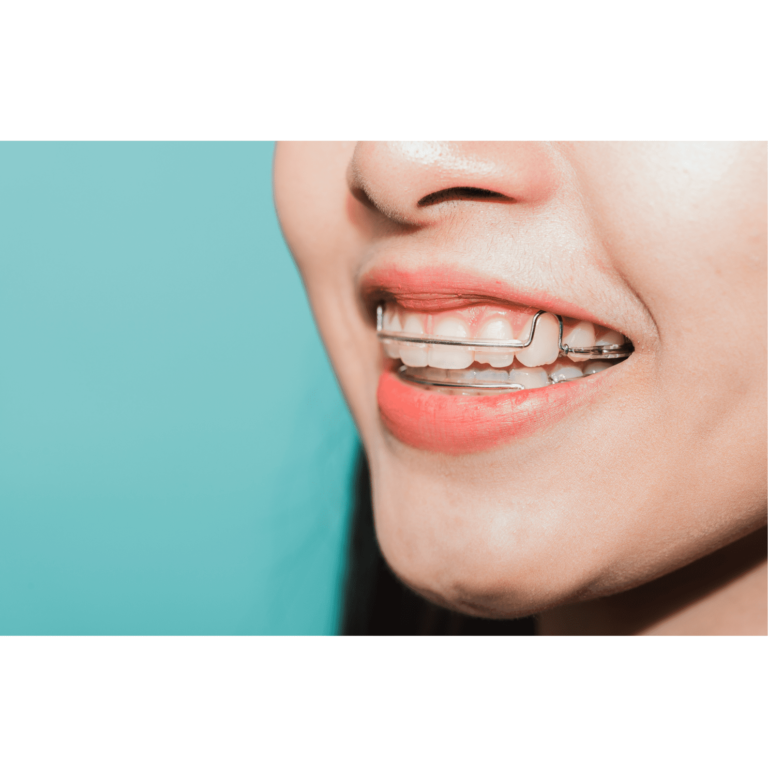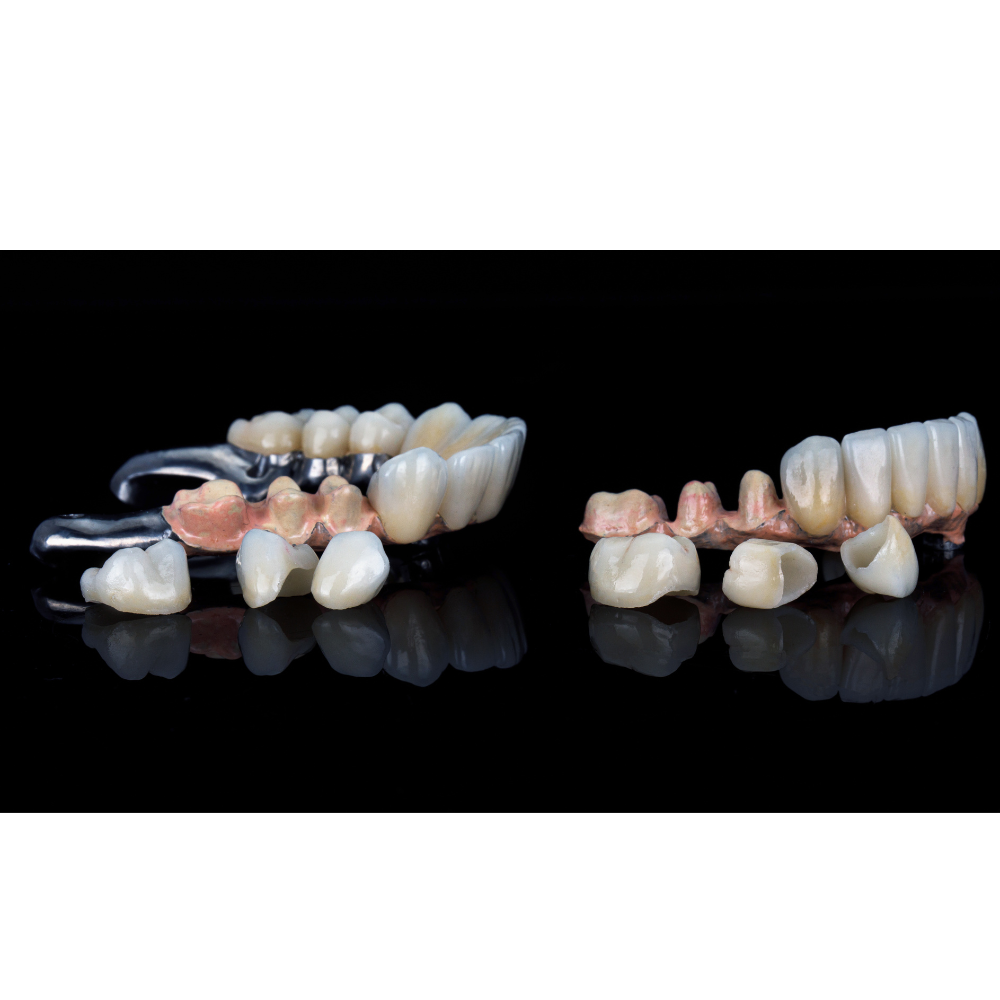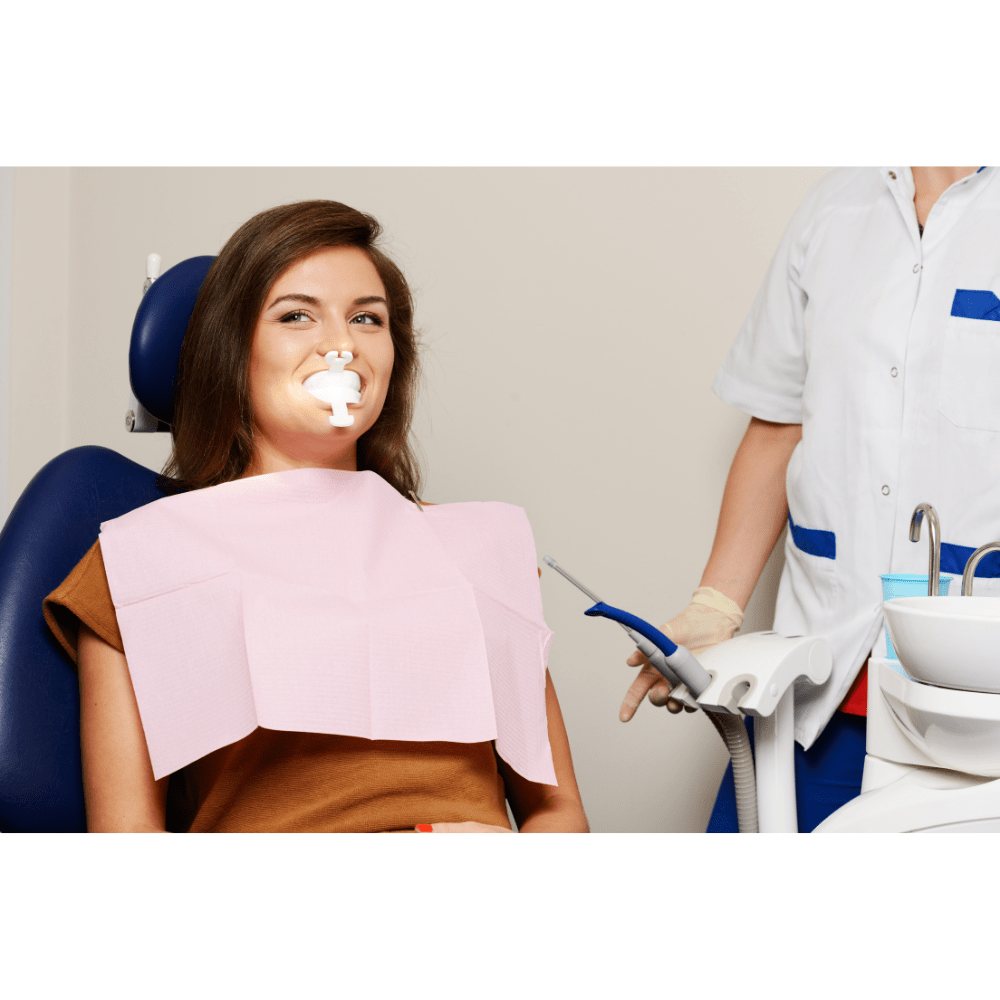Why Bite Plate With Braces is Needed | Every Aspect Covered
The bite plate acts as a protective shield that prevents damage to your teeth from the braces themselves. So, while it may seem like a small addition, the bite plate plays a big role which ensures that your braces experience is effective, efficient, and ultimately successful.
This discreet dental appliance is a silent yet crucial player in the journey toward dental alignment and bite correction. As a starting point for our discussion on orthodontic interventions, let’s examine what the bite plate is.
What is A Bite Plate?
A bite plate is a dental appliance used to fix issues with your bite. It’s usually made of plastic and fits comfortably in your mouth. By creating space between your upper and lower teeth, the bite plate helps straighten your teeth and correct problems like overbites or underbites.
It is a gentle guide for your teeth which helps them align properly without the need for invasive procedures. A bite plate is custom-made to fit comfortably over either the upper or lower teeth, or both arches, depending on the treatment plan.
-
Lower Bite Plates
The lower bite plates are designed to correct lower jaw misalignments, often associated with underbites, where the lower teeth protrude beyond the upper teeth.
-
Upper Bite Plates
The upper bite plates focus on adjusting upper jaw misalignments, typically seen in overbites, where the upper teeth excessively overlap the lower teeth.
Types
Following are the two main types of orthodontic bite plates:
Anterior Bite Plate
An anterior bite plate is designed to correct issues primarily affecting the front teeth and their alignment. This type of bite plate typically covers the biting surfaces of the front teeth.
It helps to create space between the upper and lower front teeth which improves alignment and bite function. Anterior bite plates are often used to address conditions like crowding, spacing, or minor misalignments in the front teeth.
Posterior Bite Plate
A posterior bite plate is a type of orthodontic bite plate that focuses on correcting bite problems involving the back teeth. This usually covers the biting surfaces of the back teeth.
It helps to adjust the alignment and relationship of the upper and lower molars which addresses issues such as overbite, underbite, or crossbite. Posterior bite plates are effective in repositioning the back teeth to achieve a more harmonious bite and jaw alignment.
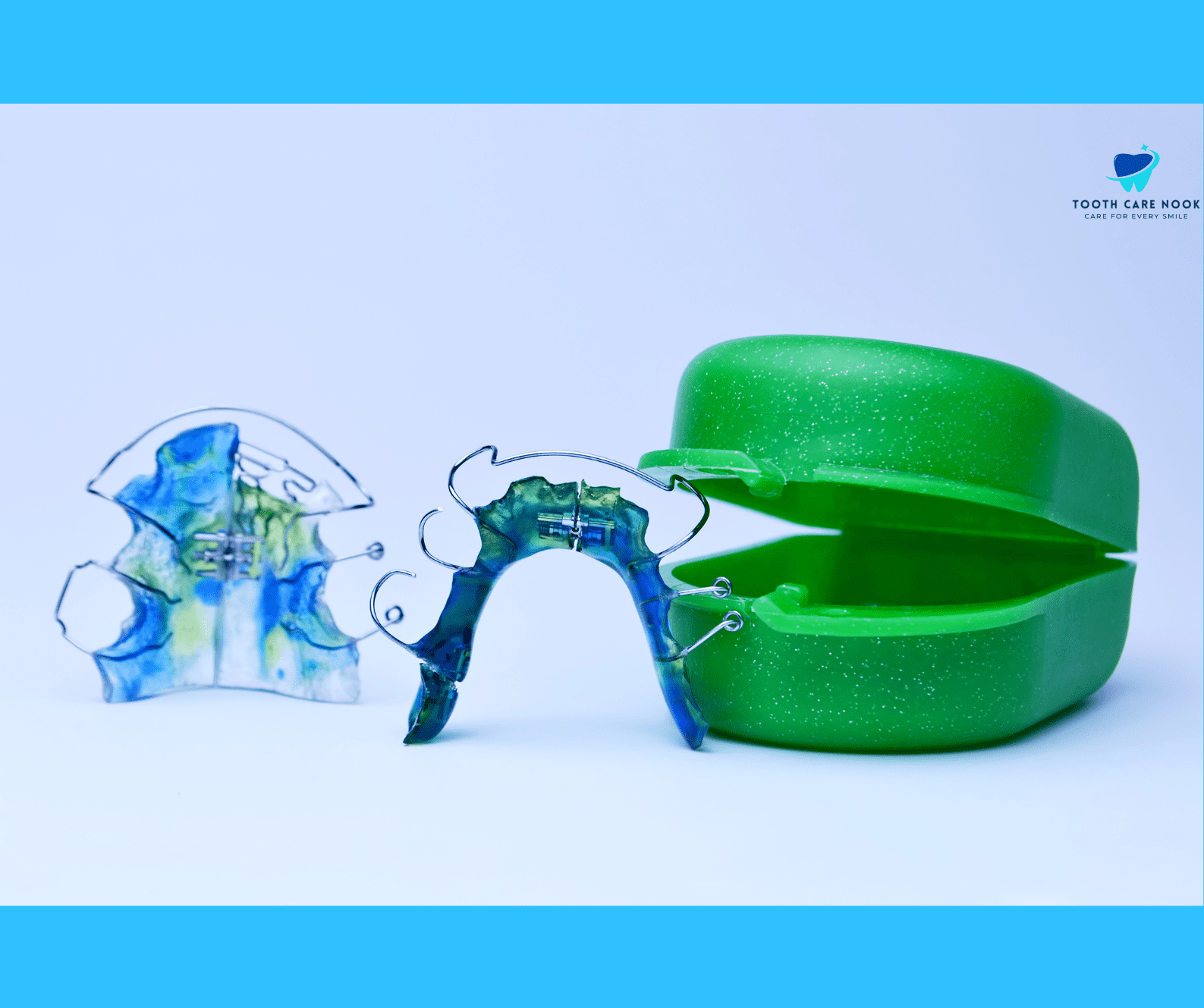
Why a Bite Plate With Braces is Needed
A bite plate for braces is needed for the following reasons:
Alignment Assistance:
The bite plate helps guide teeth into proper alignment during orthodontic treatment which ensures they move into the correct position for a straighter smile.
Bite Correction:
It aids in correcting bite discrepancies such as overbites, underbites, or crossbites by exerting gentle pressure on the teeth and jaw.
Space Creation:
By creating space between the upper and lower teeth, the bite plate facilitates proper alignment and prevents overcrowding or misalignment issues.
Teeth Protection:
The bite plate acts as a protective barrier to shield the teeth and gums from potential damage caused by the braces hardware during the treatment process.
Comfort with Braces:
It can help alleviate discomfort or soreness associated with braces by distributing pressure more evenly across the teeth and minimizing friction between brackets and wires.
How Long Do You Wear a Bite Plate for Braces?
You can wear a bite plate for braces continuously for 24 hours a day. Your orthodontist will adjust the duration based on your progress, and you might eventually wear it only at certain times of the day or night. Once your treatment goals are met, the orthodontist will reduce or stop its use.
Once your orthodontist determines that your bite has been properly corrected through the use of the bite plate for braces, they will proceed with the next phase of treatment, which includes braces or other orthodontic appliances to further refine your smile.
Caring Tips for Dental Bite Plates
Here are some caring tips for dental bite plates:
- Clean your bite plate daily with a toothbrush and mild soap or denture cleaner.
- Avoid exposing your bite plate to hot water, as it can distort its shape.
- Rinse your bite plate thoroughly after each use to remove any food particles or debris.
- Store your bite plate in a clean, dry container when not in use to prevent bacterial growth.
- Remove your dental bite plate before eating or drinking anything other than water to prevent damage.
Bite Plate Before and After
Bite plates make a great difference as you can see in the following before and after pictures.
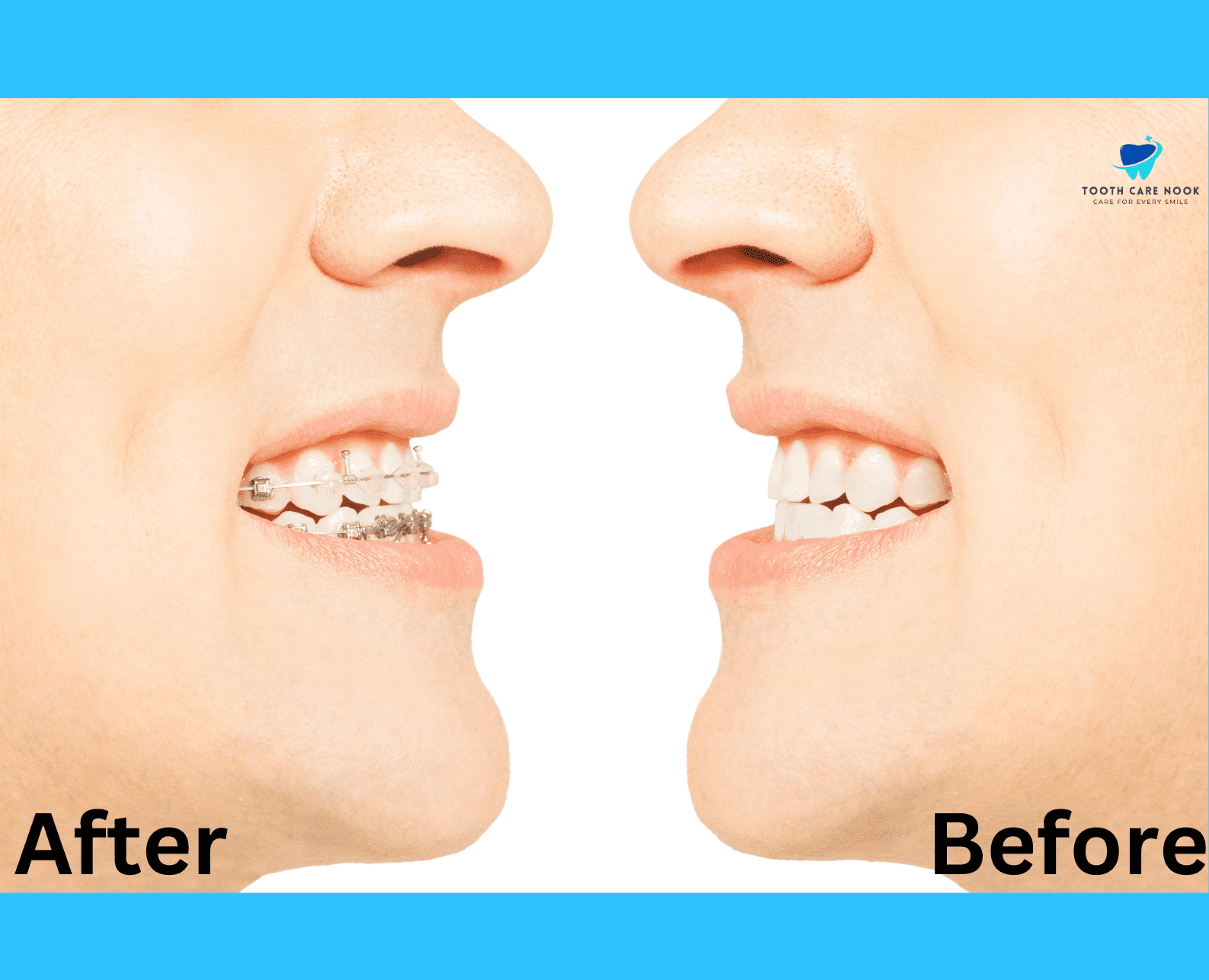
FAQs
What Does a Bite Plate Look Like?
The shape of a bite plate resembles that of a thin, clear retainer. The bite plate is designed to cover the biting surfaces of the teeth and may extend slightly beyond the edges of the dental arch to ensure proper function and alignment.
The smooth contoured shape of lower and upper bite plates allows for a snug fit in the mouth while minimizing irritation to the oral tissues.
What Are The Differences Between Fixed Bite Plates and Removable Bite Plates?
| Aspect | Fixed Bite Plates | Removable Bite Plates |
| Attachment | Cemented or bonded to the teeth | Clipped onto braces or teeth with hooks |
| Cleaning | Requires special care for cleaning around the plate | It can be easily cleaned by the patient with a toothbrush |
| Comfort | It may cause initial discomfort due to the permanent nature | Generally more comfortable as they can be removed |
| Adjustability | Limited ability to adjust or modify during treatment | Allows for adjustments or modifications as needed |
| Treatment Duration | Typically worn throughout the entire treatment period | Worn according to the orthodontist’s instructions |
What Happens if I Don’t Wear My Bite Plate?
Nothing will happen if you don’t wear your bite plate. Just the treatment progress will be delayed which leads to a longer overall duration of orthodontic treatment.
Do I Sleep With My Bite Plate On?
Yes, you can wear your bite plate while sleeping. It’s an essential part of your orthodontic treatment plan which helps to correct alignment issues and improve your bite even while you sleep.
How Long Do You Need a Bite Plate?
The duration for which you need a bite plate depends on your individual orthodontic needs and treatment plan. You will wear a bite plate for several weeks to several months, as advised by your orthodontist.

